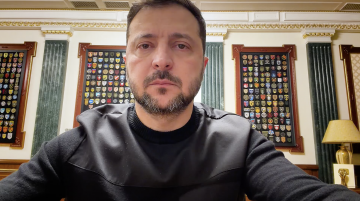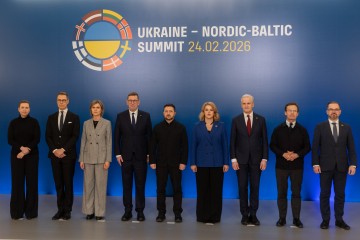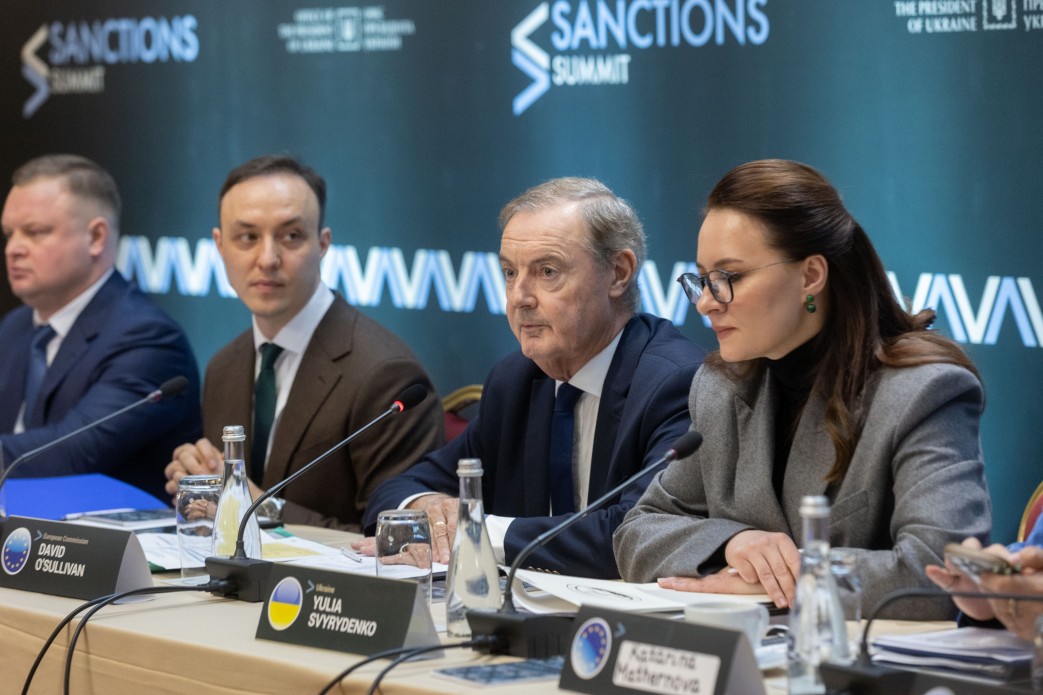The two-day Kyiv Sanctions Summit has begun, where participants are analyzing the impact of the sanctions imposed on the Russian economy and discussing the next steps.
During the opening session, Prime Minister of Ukraine Yuliia Svyrydenko thanked the partners for the sanctions packages already adopted and for their joint efforts aimed at stopping Russia’s war machine.
 “All your actions and decisions are already significantly limiting Russia’s ability to wage war. According to the latest estimates, the oil and gas revenues of the Russian budget may fall by 35 percent this month compared to last year. The numbers confirm the soundness of our joint actions, and we must continue to increase the pressure and make the sanctions more effective,” she said.
“All your actions and decisions are already significantly limiting Russia’s ability to wage war. According to the latest estimates, the oil and gas revenues of the Russian budget may fall by 35 percent this month compared to last year. The numbers confirm the soundness of our joint actions, and we must continue to increase the pressure and make the sanctions more effective,” she said.
Yuliia Svyrydenko emphasized that the next steps should encompass sanctions targeting Russia’s energy sector and its shadow fleet, including restrictions on vessel crews, insurance companies, oil refineries and traders, suppliers of technologies and components for Russian weapons, as well as personal sanctions, limits on supplying weapon components, and restrictions on financial operations.
EU Sanctions Envoy David O’Sullivan stressed that the European Union’s 19 sanctions packages, along with the restrictions imposed by the United Kingdom, the United States, Canada, and Japan, are delivering results and affecting Russia’s economy. He noted that this work must continue.
“This isn’t about just one package or the next package – this will be a continuous process. As long as this horrific war continues, we will need to keep adapting, refining, improving, and addressing new sectors and loopholes as we identify them. So this will be ongoing work,” he said.
Advisor – Commissioner of the President for Sanctions Policy Vladyslav Vlasiuk noted that the summit includes representatives from Ukraine, Belgium, the United Kingdom, Denmark, Estonia, Ireland, Iceland, Italy, Canada, Cyprus, Latvia, Lithuania, the Netherlands, Germany, Norway, Poland, Finland, France, Sweden, and the European Union.
 “Sanctions coordinators will hold a professional and frank discussion about the impact of sanctions and their synchronization across partner jurisdictions, as well as potential new opportunities to intensify pressure on Russia. A critical issue remains preventing foreign components from reaching the Russian Federation. Summit participants will be able to examine Russian weapons and the foreign-made components found inside them,” he said.
“Sanctions coordinators will hold a professional and frank discussion about the impact of sanctions and their synchronization across partner jurisdictions, as well as potential new opportunities to intensify pressure on Russia. A critical issue remains preventing foreign components from reaching the Russian Federation. Summit participants will be able to examine Russian weapons and the foreign-made components found inside them,” he said.
Vladyslav Vlasiuk highlighted that since the beginning of this year, President Volodymyr Zelenskyy has signed 56 decrees introducing sanctions, including against Russia’s military-industrial complex, its shadow fleet, Russian propagandists, and the financial sector. Since January 2024, the State Sanctions Register has been in operation, already containing more than 20,000 sanctioned individuals and entities. According to him, work on the European Union’s 20th sanctions package against Russia is nearing completion.
The result of the summit will be the development of the next steps to strengthen the sanctions coalition.




